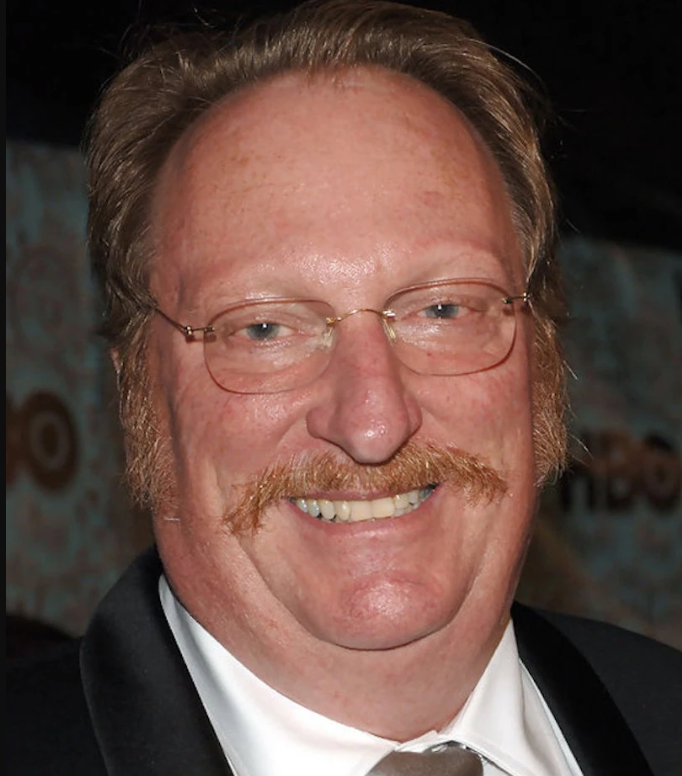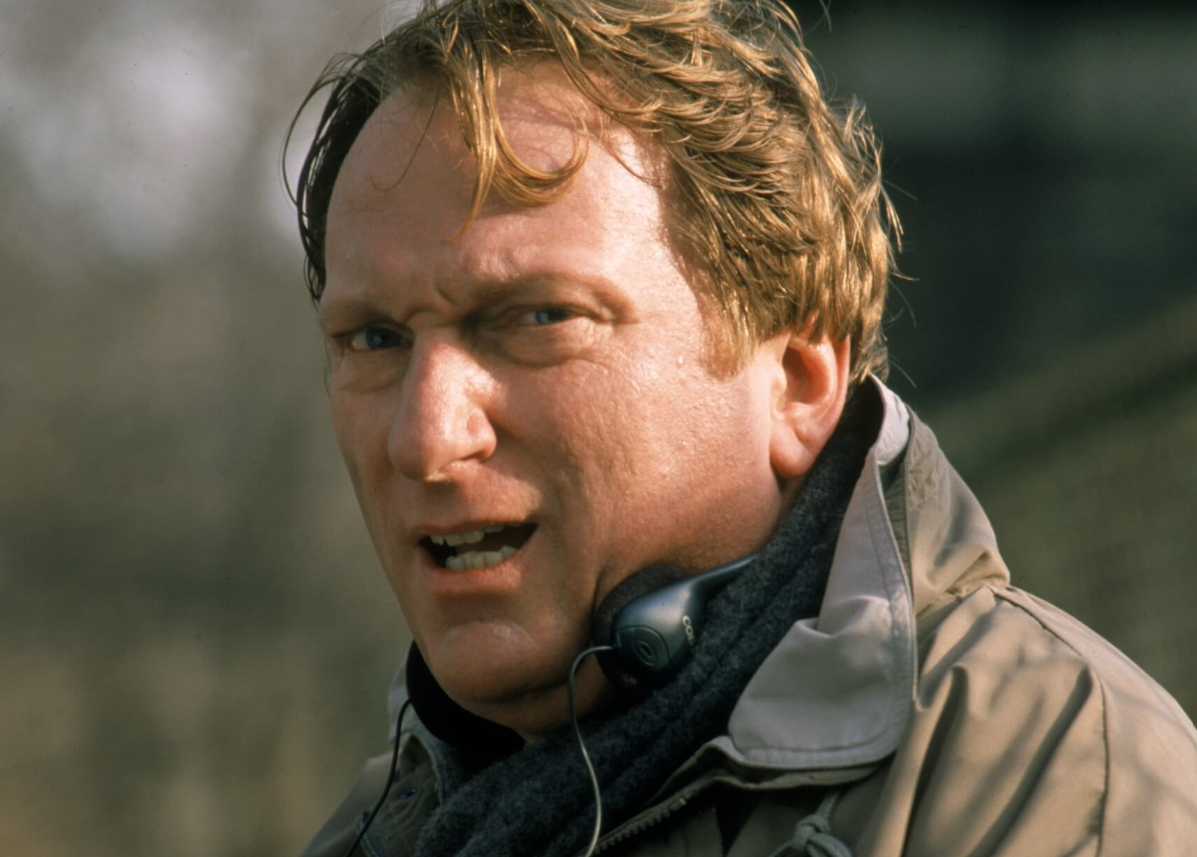Jeffrey Jones: American Character Actor
Jeffrey Jones is a renowned American character actor, best known for his distinctive portrayals in popular Hollywood films. He was born on September 28, 1946, in Buffalo, New York, and began his career in acting in the 1960s. Jones made his Broadway debut in 1969 and quickly earned recognition for his talent. His defining moment, however, arrived with the film “Ferris Bueller’s Day Off,” where he played the unforgettable role of Principal Ed Rooney. The character, with all its quirks and comedic timing, became iconic thanks to Jones’ exceptional performance.
Jones’ career has been marked by a variety of roles that demonstrate his versatility as an actor. He has played everything from eccentric characters in comedies to serious roles in dramas. His other notable performances include his roles in “Beetlejuice,” “Amadeus,” and “The Devil’s Advocate,” among others. His unique ability to breathe life into these characters has earned him a place in the hearts of audiences and critics alike.
Despite his success on the silver screen, Jones also made his mark on the small screen. He has appeared in several critically acclaimed television series, such as “Deadwood,” where he played the character A.W. Merrick. His performances, whether on television or in film, are often characterized by an undercurrent of dry wit and a knack for physical comedy, contributing to his status as a beloved character actor.
Jones’ talent has not gone unrecognized within the industry. Over the years, he has received several accolades for his performances, highlighting his ability to bring even the most complex characters to life. His portrayal of Emperor Joseph II in “Amadeus” earned him a nomination for a Golden Globe Award, while his role in “The Crucible” garnered him a nomination for a Satellite Award.
Despite facing personal challenges, Jones has remained dedicated to his craft. His career spans over five decades, a testament to his enduring talent and appeal. Throughout this time, he has worked with some of the most respected directors and actors in Hollywood, further cementing his status in the industry. From Tim Burton to Milos Forman, Jones has collaborated with some of the best in the business.
Jeffrey Jones represents a generation of actors who have made an indelible impact on the world of cinema. His contributions to film and television have left a lasting legacy, with his performances continuing to resonate with audiences. He is a testament to the power of character acting, proving that it is not always the leading role that leaves the deepest impression. Ultimately, Jones’ career serves as a shining example of the impact a dedicated character actor can have on the world of entertainment.

Early Career and Background
The early career and background of an individual form the foundation of their professional life. It encompasses the initial stages of a person’s work experience, where they acquire and refine skills, establish networks, and learn the nuances of their chosen field. Often this period is filled with exploration, trial and error, and gradual progression towards expertise. The early career phase is typically marked by a steep learning curve and is a crucial time for character and skill development.
Similarly, background refers to the sum total of a person’s experiences, qualifications, and personal history that shapes their perspective and approach to their professional life. It includes formal education, internships, volunteering, projects, or any other experience that contributes to a person’s knowledge and understanding of their profession. It also encompasses personal experiences and life situations that are instrumental in shaping a person’s attitude, work ethic, and values.
Early career and background are interconnected and often influence each other. For instance, a person with a degree in computer science would likely begin their career in a related field, while their background in teamwork and leadership, perhaps acquired through college projects or clubs, may influence their success in the workplace.
The combination of one’s early career and background helps to mold their professional identity. It forms the basis for their future career path and influences the decisions they make, the opportunities they pursue, and the challenges they encounter. Therefore, understanding and reflecting on one’s early career and background can provide valuable insights into their professional journey and future potential. It is a testament to the fact that everyone’s professional journey is unique, shaped by their distinct experiences, learning, and approaches.
Film and Television Career
A career in film and television is a captivating pursuit filled with opportunities for creativity and innovation. It encompasses a diverse range of roles, from directing and producing to acting, scriptwriting, cinematography, and editing. Each role requires a unique set of skills and abilities, and the journey to success often involves extensive training, hands-on experience, and a deep passion for storytelling. The industry is characterized by its dynamic, fast-paced nature, requiring individuals to adapt quickly to new technologies and trends. Success in this field often demands perseverance, as competition can be fierce and the path to recognition can be long and arduous. Regardless, a career in film and television offers the chance to be part of creating memorable, impactful content that can entertain, inspire, and educate audiences worldwide.
It provides an opportunity to work with talented individuals from various disciplines, fostering a collaborative environment that nurtures creativity. Whether it’s creating a gripping drama, a heartwarming comedy, or a thought-provoking documentary, a career in film and television allows individuals to bring visions to life on screen. It’s a career path that can offer immense satisfaction for those who have an enduring love for visual storytelling, a knack for creativity, and the determination to make their mark in the world of entertainment.

Notable Television Roles
Television roles that are notable often have a significant impact on the culture, becoming iconic figures in our collective consciousness. Such roles are frequently characterized by the depth of the character, the quality of the performance, and the connection the audience feels with the character. For instance, consider Walter White from “Breaking Bad,” portrayed by Bryan Cranston. Walter White’s transformation from a mild-mannered high school chemistry teacher to a ruthless drug kingpin captivated audiences and solidified Cranston’s place in television history. Another notable television role is Jon Hamm’s portrayal of Don Draper in “Mad Men.” Hamm’s nuanced depiction of a complex, deeply flawed advertising executive during the 1960s resonated with viewers and critics alike, earning him numerous accolades.
Similarly, Julia Louis-Dreyfus’ performance as Selina Meyer in “Veep” is another standout. The character’s ruthless ambition and biting humor, combined with Louis-Dreyfus’ comedic timing, made Selina Meyer one of television’s most compelling political figures. These roles have left an indelible mark on TV history, showcasing the power of compelling storytelling and exceptional acting. Even years after their series have ended, these characters continue to engage audiences, testament to their lasting influence and importance.
Personal Life and Family
Personal life and family are inextricably intertwined, forming the bedrock of our existence. They shape our values, mold our personalities, and influence our decisions in a profound way. The family is the first institution we encounter, and it is within this sphere that we learn to navigate the complexities of human relationships. Our personal lives, on the other hand, represent our individual journeys, including our aspirations, struggles, achievements, and disappointments.
The relationship between personal life and family is symbiotic. Our families provide us with a sense of belonging and security, and they are often our primary source of emotional and financial support. In turn, our personal experiences enrich our family ties, bringing in new perspectives, knowledge, and experiences that can foster mutual growth and understanding.
In the modern world, the boundaries between personal life and family are becoming increasingly blurred. With advancements in technology and changing societal norms, the definition of family is expanding beyond the traditional constructs. Single-parent families, same-sex couples, blended families, and cohabitation are just a few of the myriad family configurations that exist today.
Concurrently, our personal lives are becoming more public, thanks in large part to the rise of social media. Our triumphs, failures, joys, and sorrows are often shared with a broad audience, effectively blurring the line between the private and the public.
However, despite these changes, the fundamental essence of personal life and family remains the same. They are still about the bonds we share, the love we give and receive, the support we provide, and the memories we create. They represent our roots and our wings, anchoring us in a sense of identity and propelling us towards our dreams. Regardless of the shape they take, our personal life and family are the threads that weave the tapestry of our lives. They are our past, present, and future; our story, our journey, our home.

Legal Issues and Criminal Offenses
Legal matters and criminal offenses are complex topics that encompass a range of situations and actions. Essentially, they pertain to activities that breach societal norms and regulations, leading to potential penalties or retributions. The severity of these offenses can vary significantly, from minor infractions such as traffic violations to more severe crimes such as homicide or terrorism. Legal issues, on the other hand, can be more diverse, relating to disputes or problems that need to be resolved within the judicial system. These might include contract disputes, personal injury claims, or issues relating to property or family matters.
The judicial system is responsible for managing these matters, ensuring that rules are enforced and justice is served. This system operates on principles of fairness and equality, seeking to ensure that all individuals are treated equally, regardless of their status or circumstances. Those accused of criminal offenses are presumed innocent until proven guilty, and they have rights to legal representation and a fair trial.
Understanding these topics requires a solid grasp of the principles and procedures of the judicial system, as well as the societal norms and values that underpin its operation. It also requires an understanding of the potential impacts and consequences of criminal offenses, both for the individuals involved and for society as a whole. Ultimately, these issues and offenses play a crucial role in maintaining social order and justice, providing a framework for resolving disputes and punishing unacceptable behavior.
Navigating through these legal matters and criminal offenses can be a daunting task, which is why legal professionals play a key role. They offer advice and representation to individuals, businesses, and organizations, helping them understand their rights and responsibilities, and guiding them through the complex processes involved. Their role is not just about enforcing rules and regulations, but also about upholding the principles of justice and fairness that underpin the judicial system.
Comprehensive Filmography
A comprehensive filmography is an extensive record of all the films associated with a particular individual or production company. This sort of catalog can be used to track the career of a filmmaker, actor, or any other professional in the film industry. It includes the title of each film, the year it was released, the role the person played in its creation, and other relevant information. A comprehensive filmography may also include details about awards won, box office earnings, and critical receptions.
It can be a valuable resource for film historians, researchers, or simply film enthusiasts who want to delve deeper into the work of a particular artist or company. It can provide insights into the evolution of a filmmaker’s style, the trends in their work, and their impact on the industry. A comprehensive filmography, when paired with critical analysis and historical context, can serve as a roadmap to understanding the cinematic landscape of a given period. It can reveal patterns and trends, highlight peaks and troughs in a career, and offer a snapshot of a filmmaker’s artistic journey. As such, a comprehensive filmography is not just a list of films; it’s a tool for understanding the broader picture of an individual’s or a company’s contribution to the world of cinema.

Impact and Legacy in Acting
The impact and legacy in acting is a profound topic that reflects the power of this art form to influence society, culture, and individuals in countless ways. Influential actors leave an indelible mark not only in the film and theater industry, but also in the hearts and minds of the audience. The impact is often visible in the way their performances reshape the perception of certain roles, challenge stereotypes, inspire new styles of performance, and open doors for future generations of actors. For instance, Marlon Brando’s realistic, emotionally charged style of acting in the mid-20th century revolutionized the craft and influenced countless actors who followed in his footsteps.
The legacy that actors leave behind is often multi-faceted. It includes their body of work, the awards and recognition they have received, and the respect they’ve earned from peers and fans. However, it also consists of the changes they’ve instigated in the industry, the opportunities they’ve created for others, and the social or cultural issues they’ve brought to the forefront through their roles or off-screen activism.
An actor’s impact and legacy can also transcend the boundaries of their profession. For example, Audrey Hepburn’s work with UNICEF, long after her acting career ended, left a lasting impact on the world, demonstrating how actors can utilize their fame for the betterment of humanity. Similarly, the late Chadwick Boseman’s portrayal of iconic African-American figures in film has had a profound impact on representation and diversity in Hollywood, a legacy that continues to inspire and pave the way for actors of color.
In conclusion, the impact and legacy in acting is not confined to the screen or stage. It ripples out into society, altering perceptions, inspiring change, and leaving a lasting imprint that can endure long after the actors themselves have left the spotlight. The most influential actors are those who understand that their work has the potential to be a powerful tool for transformation and use it to effect positive change.
